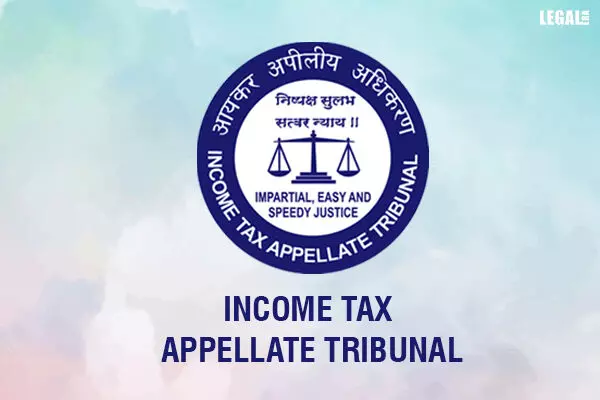- Home
- News
- Articles+
- Aerospace
- Agriculture
- Alternate Dispute Resolution
- Banking and Finance
- Bankruptcy
- Book Review
- Bribery & Corruption
- Commercial Litigation
- Competition Law
- Conference Reports
- Consumer Products
- Contract
- Corporate Governance
- Corporate Law
- Covid-19
- Cryptocurrency
- Cybersecurity
- Data Protection
- Defence
- Digital Economy
- E-commerce
- Employment Law
- Energy and Natural Resources
- Entertainment and Sports Law
- Environmental Law
- FDI
- Food and Beverage
- Health Care
- IBC Diaries
- Insurance Law
- Intellectual Property
- International Law
- Know the Law
- Labour Laws
- Litigation
- Litigation Funding
- Manufacturing
- Mergers & Acquisitions
- NFTs
- Privacy
- Private Equity
- Project Finance
- Real Estate
- Risk and Compliance
- Technology Media and Telecom
- Tributes
- Zoom In
- Take On Board
- In Focus
- Law & Policy and Regulation
- IP & Tech Era
- Viewpoint
- Arbitration & Mediation
- Tax
- Student Corner
- AI
- ESG
- Gaming
- Inclusion & Diversity
- Law Firms
- In-House
- Rankings
- E-Magazine
- Legal Era TV
- Events
- News
- Articles
- Aerospace
- Agriculture
- Alternate Dispute Resolution
- Banking and Finance
- Bankruptcy
- Book Review
- Bribery & Corruption
- Commercial Litigation
- Competition Law
- Conference Reports
- Consumer Products
- Contract
- Corporate Governance
- Corporate Law
- Covid-19
- Cryptocurrency
- Cybersecurity
- Data Protection
- Defence
- Digital Economy
- E-commerce
- Employment Law
- Energy and Natural Resources
- Entertainment and Sports Law
- Environmental Law
- FDI
- Food and Beverage
- Health Care
- IBC Diaries
- Insurance Law
- Intellectual Property
- International Law
- Know the Law
- Labour Laws
- Litigation
- Litigation Funding
- Manufacturing
- Mergers & Acquisitions
- NFTs
- Privacy
- Private Equity
- Project Finance
- Real Estate
- Risk and Compliance
- Technology Media and Telecom
- Tributes
- Zoom In
- Take On Board
- In Focus
- Law & Policy and Regulation
- IP & Tech Era
- Viewpoint
- Arbitration & Mediation
- Tax
- Student Corner
- AI
- ESG
- Gaming
- Inclusion & Diversity
- Law Firms
- In-House
- Rankings
- E-Magazine
- Legal Era TV
- Events
ITAT grants relief to Knight Riders Sports in IT assessment order

ITAT grants relief to Knight Riders Sports in IT assessment order
The assessing officer had erroneously initiated penalty proceedings for furnishing inaccurate particulars
The Mumbai bench of the Income Tax Appellate Tribunal (ITAT) has ruled that when the additions made in the assessment order, forming the basis for levying the penalty under Section 271(1)(c) of the Income Tax Act, were subsequently deleted in the quantum appeal, the penalty would not stand.
The case involved disallowances faced by Knight Riders Sports Pvt. Ltd (assessee), a 100 percent subsidiary of Red Chillies Entertainment Pvt. Ltd., during the assessment under Section 143(3).
The disallowances included franchise fees (treated as capital), airfare, traveling expenses, website design charges (treated as capital with depreciation), and lodging & boarding/food and catering charges.
The disallowances were upheld by the Commissioner of Income Tax (Appeals). Subsequently, the assessing officer (AO) initiated penalty proceedings under Section 271(1)(c) for furnishing inaccurate particulars. The AO levied a penalty of 100 percent of the tax sought to be evaded, amounting to Rs.4,42,44,913 for the Assessment Year 2011-2012 and Rs.3,53,05,323 for the Assessment Year 2012-2013.
The assessee appealed to CIT(A) against the penalty. The CIT(A) ruled in favor of the assessee and deleted the entire penalty imposed by the AO.
The Coram of Vikas Awasthy (judicial member) and Padmavathy S. (accountant member) noted that a co-ordinate bench in the assessee’s own case had already deleted the quantum addition related to the franchise fees. Also, the other issues concerning disallowance of airfare, etc., were sent back to the AO for a fresh review.
The CIT(A) had considered the order of the tribunal and the order of the AO, and, subsequently, deleted the penalty imposed under Section 271(1)(c) of the IT Act.
ITAT clarified that it was a well-settled legal principle that when the additions made in the assessment order, forming the basis for levying the penalty, were subsequently deleted, the penalty became untenable.
It further ruled that until the constitution and pronouncement of the decision of the special bench, the decision of the co-ordinate bench was binding in the quantum appeal.
Thus, the tribunal stated that the penalty levied on the assessee was not sustainable. It upheld the decision of CIT(A) and dismissed the appeal of the revenue department.




